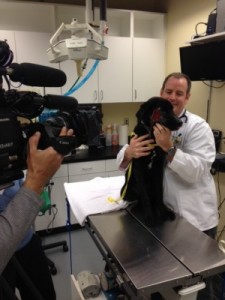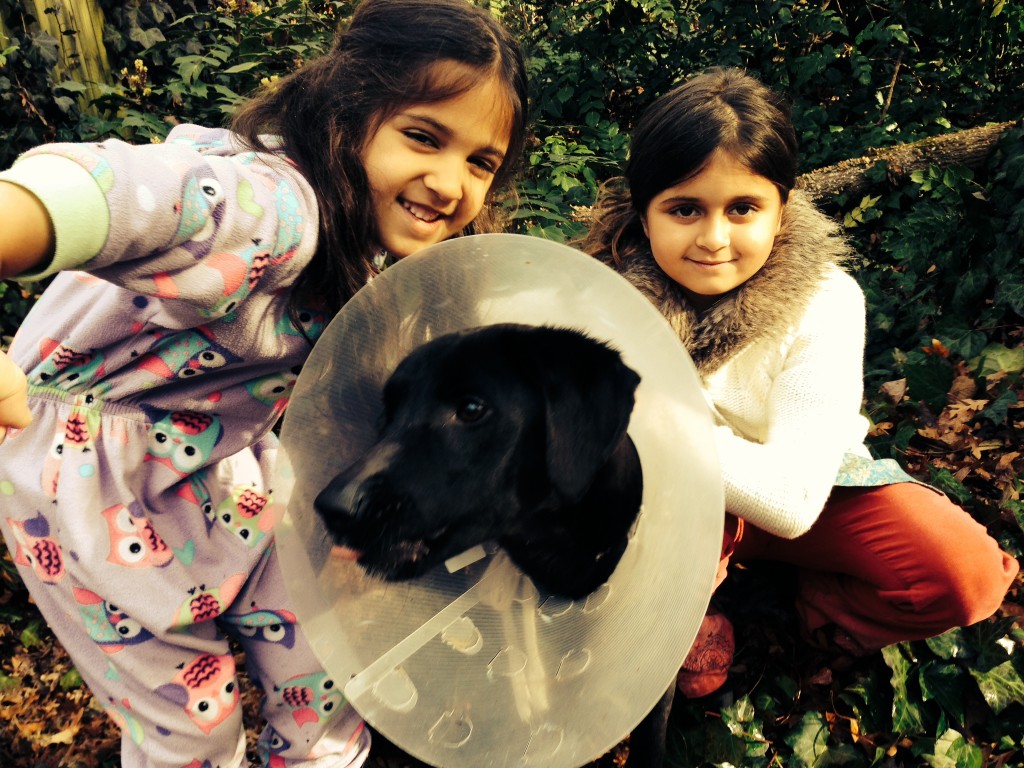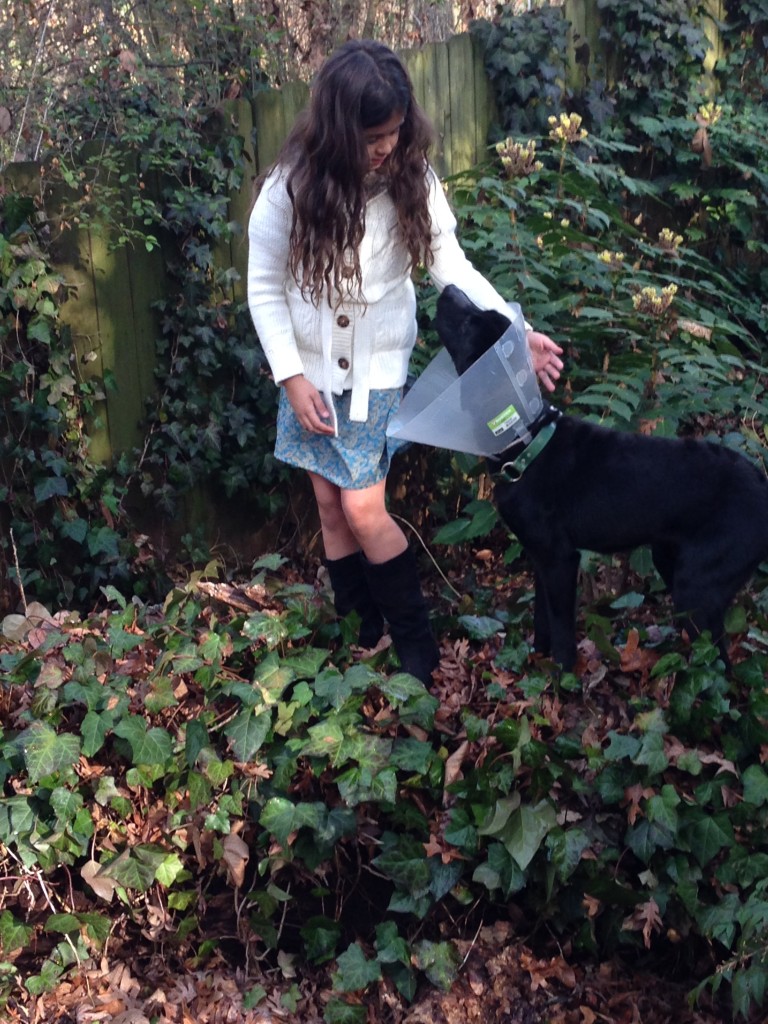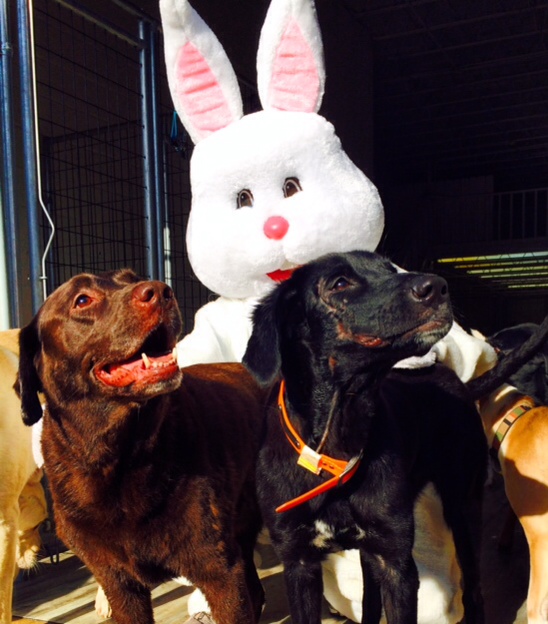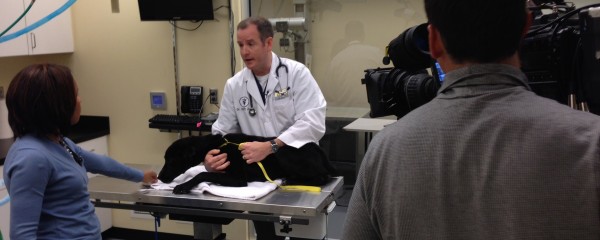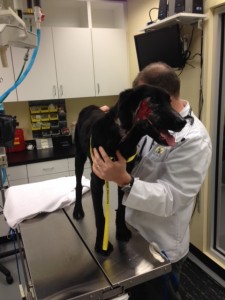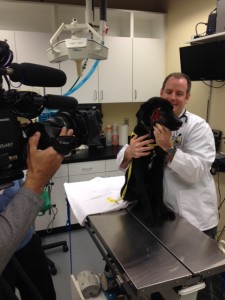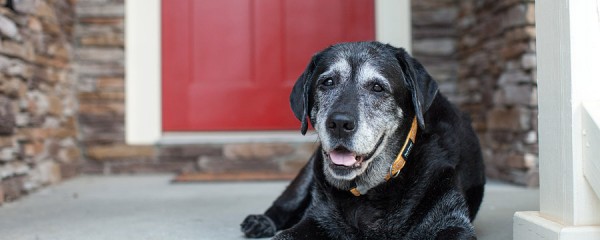Can your dog read your mind?

Here is a great article from Cesar’s Way – And yes, when it comes to treats, all dogs can read your mind!!
By Jon Bastian
Has this ever happened to you? It’s time to take the dog somewhere she doesn’t like to go, like the vet or groomer; or you’ve decided it’s bath time — but when you look for the dog, she’s nowhere to be found. You haven’t even said the words “vet” or “bath,” and yet your dog somehow seems to know something unpleasant is coming and hides from you.
It may seem like psychic ability, and you probably find yourself wondering, “How did the dog know what I was thinking?” As science is learning, though, the answer is because dogs are a lot more perceptive and tuned into us than we realize.
One of the questions behaviorists have been studying in animals for years is “Do they have a theory of mind?” What does that mean? As described by veterinarian Nicholas Dodman, “Theory of mind implies self-awareness and the ability to understand that other individuals may possess information and agendas.”
In other words, the question is whether dogs are aware of their own emotional states, and understand that other living things have their own unique emotional states and awareness.
Humans obviously have this ability — we know what we’re thinking and feeling, and we know that other people have different thoughts and feelings. Now, the evidence is increasingly pointing to the likelihood that dogs have theories of mind as well.
For the evidence, we only need to look at some of the abilities that our dogs have.
They can have empathy for us
Defined as “the ability to understand and share the feelings of another,” humans clearly have empathy, for each other and animals — this is the entire reason that storytelling works for us; we can put ourselves in the place of the characters, feeling what they’re feeling as well as feeling for them.
A study published in Biology Letters used a novel but valid test to determine whether dogs have empathy: contagious yawning. This is the phenomenon in which one person yawning will cause others in the group to do the same, and its cause was a mystery for a long time. It wasn’t until scientists determined that children with autism do not “catch” yawns from others that they realized it was caused by, and is a sign of, empathy, which is something that many autistic people lack.
Many species exhibit contagious yawning, but only within the species. Dogs and people seem to be the only exceptions. The study noted above found that dogs would start yawning if humans did, and especially if it was their human who yawned.
Score one for “theory of mind.” Dogs can understand that we have feelings.
They can understand our point of view
In another experiment, reported in Behaviour, researchers determined that dogs can tell whether or not a human can see something and then respond appropriately.
In the experiment, a human sat at one end of a table, with a dog at the other. There were two barriers between them, one transparent and the other opaque, with two toys placed on the dog’s side, one behind each barrier. When the human called to the dog to “bring it,” the dog would only choose the toy that they knew the human could see, ignoring the other.
But when the human turned their back on the dog and toys or sat on the same side as the dog, then the toy selection was completely random. This means that dogs can understand that our point of view is different than theirs and figure out what we can see — score another point for theory of mind.
They trust our judgment
Give a dog a choice between a huge bowl of food and a small one and they’ll choose the bigger one every time, right? Apparently not. According to a study published in PLoS ONE, a dog will choose the bowl that a human seems to prefer, regardless of size or what’s in it. They still don’t know why this is the case, but it does show how dogs look to us for leadership. Eating is a primal need, and yet our opinion can influence what a dog eats.
This is also why begging can be such a problem with dogs. They’re not trying to be annoying; they just want in on what we seem to enjoy. They understand that we have information that they don’t. Three points for theory of mind.
They can feel jealousy… sort of
Humans have two kinds of emotions: primary emotions like fear, joy, grief and anger, and secondary emotions including hatred, anxiety, insecurity, and jealousy. Multiple studies have indicated that dogs can feel jealousy.
In one study, researchers had dog owners give affection to a stuffed dog while their own dog was present. The dogs reacted by trying to get between the human and toy, nudging the human, or even snapping at the fake dog. They showed none of these behaviors when the human showed the same affection to a different object, like a book.
Another study at the University of Vienna found that dogs have a sense of fairness. Alone, a dog would “shake” with or without a reward. However, in the presence of another dog, the first dog would stop cooperating if its rival received a reward and they didn’t, or if the other dog got a better reward — in this case sausage versus plain brown bread.
Secondary emotions require self-awareness, as well as an understanding of what another animal is experiencing; more support for dogs having a theory of mind
They get the point
Or, rather, they get pointing and respond to it, something that even chimpanzees cannot do. For this one, you don’t even need a panel of scientists. Just get your dog’s attention and point at something — he’ll probably look at it. In fact, you don’t even need to point. Just focus your attention on something and your dog will, too.
When you have intention, you have an agenda. Dogs can pick up on this, another important part of having a theory of mind.
Put this all together, and you have the explanation for your dog’s apparent psychic ability. They are constantly looking to us for leadership because they trust our judgment, and they are aware of what we are aware of. They can read our intentions through our body language and energy, and respond accordingly. They know that we have information that they don’t, so are always trying to figure us out.
Most importantly, they are acutely aware of the clues we are giving even when we aren’t. It can be as simple as the dog figuring out that when you go on a car trip on the day you don’t leave for work in the morning that it might be a bad thing for her, or as complex as sensing the hidden feelings you always have right before that trip to the vet or the bath.
Dogs continuously pay close attention to us for clues on what they should do. When we start to pay the same attention to them and to our own behavior, then we’re one more step on the way to becoming a successful Pack Leader.
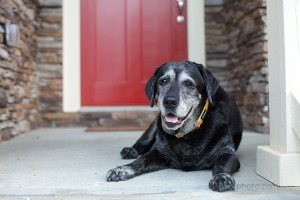


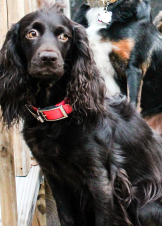

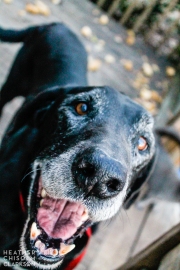
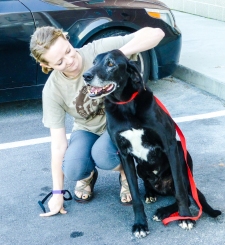


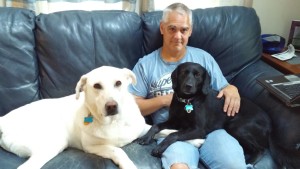
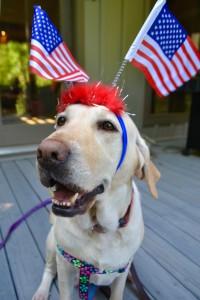
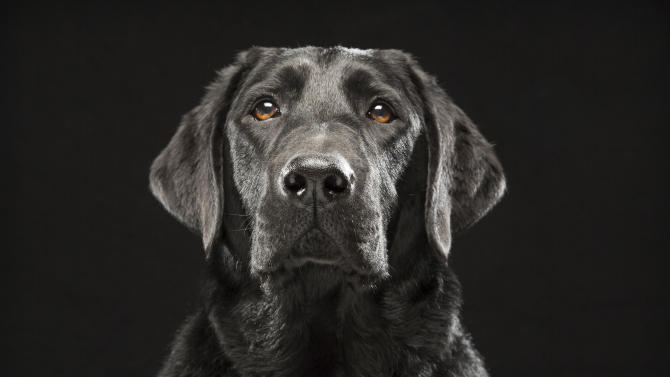











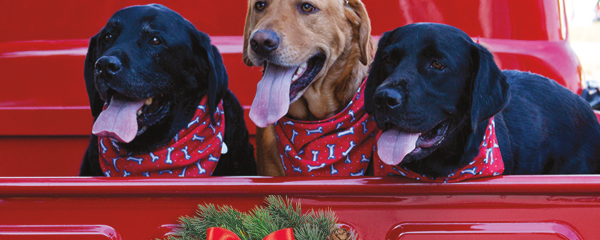
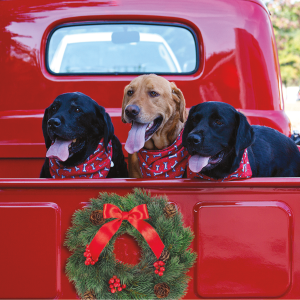

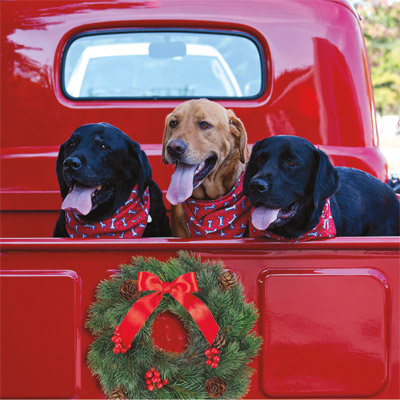


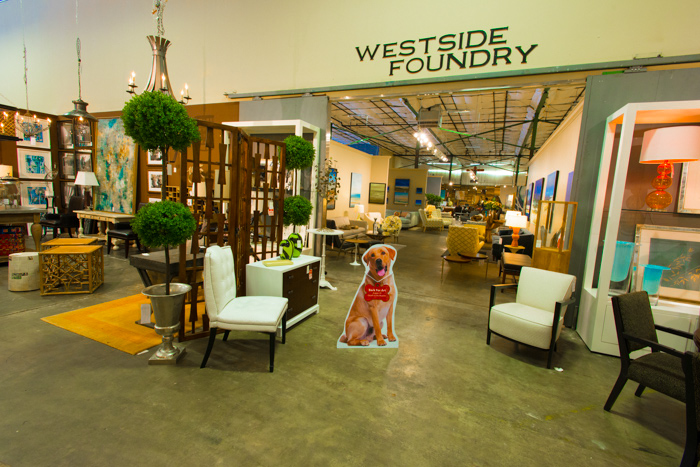


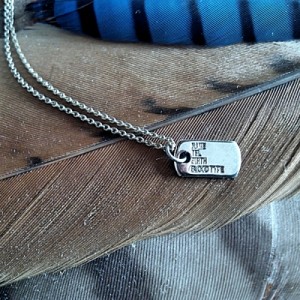



 All of this being said, we bring in dogs and adopt them out faster than any group I know. That’s because we have an audience of adopters and supporters that get us. You understand that these dogs are all deserving of a good home and you have the insight to see the hidden gems, the rags to riches, the sow’s ear to silk purse…you just get it.
All of this being said, we bring in dogs and adopt them out faster than any group I know. That’s because we have an audience of adopters and supporters that get us. You understand that these dogs are all deserving of a good home and you have the insight to see the hidden gems, the rags to riches, the sow’s ear to silk purse…you just get it.


